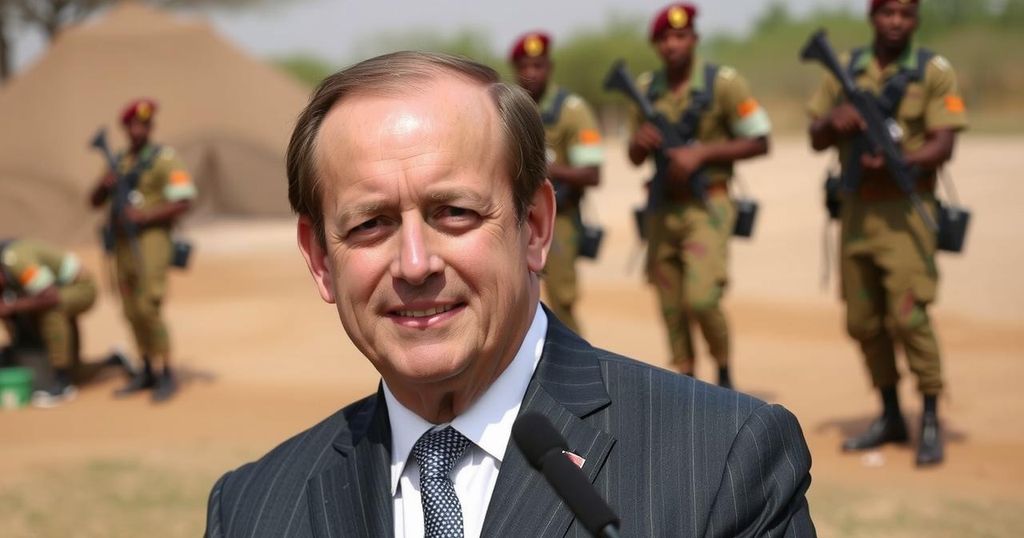France has denied allegations from Niger claiming that Nigeria permitted France to establish a military base for destabilizing Niger. The French Embassy called the accusations groundless, which were met with strong denials from the Nigerian government. In a broader context, Nigeria’s Foreign Minister emphasized the necessity of maintaining relationships with global powers to tackle regional insecurity, while French President Macron criticized claims of France’s withdrawal from the Sahel.
On Wednesday, France categorically rejected claims from Niger that Nigeria had offered its territory for a French military base aimed at destabilizing Niger. The assertion, made by Niger’s military leader General Abdourahamane Tchiani, was labeled “groundless” by Mr. Bertrand de Seissan, the Political Counsellor at the French Embassy in Nigeria, during an interview with the News Agency of Nigeria.
General Tchiani had accused both Nigeria and France of conspiring against Niger, alleging that France was collaborating with terrorist groups in Nigeria. He further claimed that substantial payments had been made to Nigerian President Bola Tinubu to support military operations against Niger. In response, the French Embassy firmly denied these allegations, underscoring that such discussions had never taken place.
The Nigerian government echoed this sentiment, with the Ministry of Foreign Affairs describing Tchiani’s statements as baseless and unfounded. Spokesman Kimiebi Ebienfa expressed serious concern over the accusations, clarifying that there were no French troops preparing for operations in northern Niger. Nigeria’s diplomatic relationship with France was described as cordial and based on mutual respect and non-interference.
In a media appearance, Nigeria’s Minister of Foreign Affairs, Ambassador Yusuf Tuggar, emphasized the importance of Nigeria’s relationship with France, stating that partnership with various global powers is essential to tackling insecurity in the region. Tuggar noted, “It did not start today and there is nothing different about our relationship with France today.” He advocated for a broad coalition of countries, including the United States and Russia, to address the complexities of regional security.
French President Emmanuel Macron also addressed the topic during a recent foreign policy conference, dismissing claims of France being forced out of the Sahel. He characterized Sahelian leaders as “ungrateful” for shifting focus away from combating terrorism, indicating the ongoing complexities and diplomatic tensions in the region.
In summary, this diplomatic dispute reflects a significant misunderstanding between Niger, Nigeria, and France, amidst broader security challenges in West Africa.
The pressing issues in the Sahel region necessitate a multi-national approach involving partnerships with key global actors.
The recent tensions between Niger and France, with Nigeria caught in the middle, stem from allegations of external interference and conspiracies aimed at destabilizing Niger’s military regime. These claims come amid rising insecurity in the Sahel, marked by increasing terrorist activities linked to groups such as Boko Haram and others. Relationships among these countries are delicate, influenced by historical ties and contemporary geopolitical demands.
The situation highlights the fragile nature of diplomatic relations in West Africa and the impact of regional security dynamics on international partnerships. The denials from both France and Nigeria signal a desire to maintain constructive relations, while the allegations from Niger underscore the complexity of addressing security concerns in the region. Ongoing dialogue and collaboration with multiple global powers remain crucial for the stability of the Sahel.
Original Source: punchng.com






